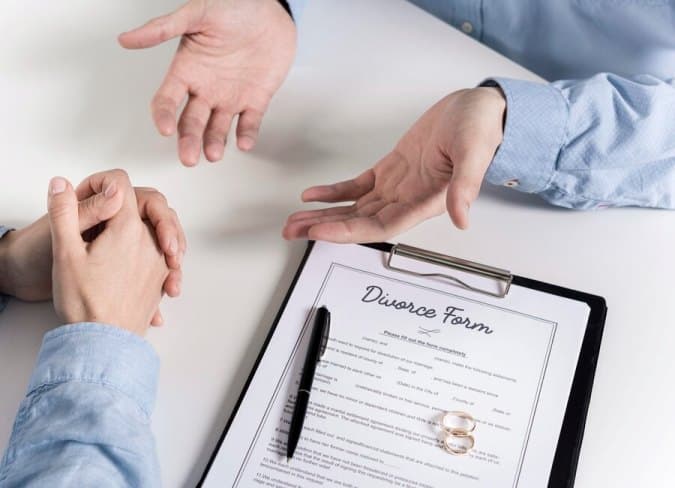Remarrying after a divorce is a significant decision, and it’s crucial to understand the legal requirements involved. Gathering the necessary paperwork is a vital step in this process.
In this article, we’ll walk you through the documents you’ll need to remarry after a divorce, ensuring a seamless transition into this new chapter of your life.
Vital Documents for Remarrying After a Divorce
Navigating the legalities of remarriage can be complex, but with the right paperwork, the process becomes much smoother. Here are the essential documents you’ll need:
1. Finalized Divorce Decree
The cornerstone of any remarriage after a divorce is the finalized divorce decree. This legal document officially dissolves the previous marriage and outlines the terms of the separation, including issues related to property division, alimony, child custody, and visitation rights.
It serves as evidence that the previous marriage has been legally terminated, providing a clean slate for the parties involved.
2. Proof of Identity and Age
Valid identification is a fundamental requirement for any legal process, including remarriage. This may include a government-issued photo ID such as a driver’s license, passport, or state ID card.
Additionally, a birth certificate may be required to verify your age, ensuring compliance with legal age requirements for marriage in your jurisdiction.
Read Also: What Steps Should You Take if You Feel Your Marriage Isn’t Working?
3. Marriage License Application
Applying for a marriage license is a crucial step in the process of remarrying. This document grants you the legal authority to proceed with the marriage ceremony.
Visit your local government office or courthouse to obtain the necessary forms for a marriage license application. Be sure to fill out the application accurately and provide any additional documentation as required.
4. Previous Marriage Certificate
Having documentation of your previous marriage is essential in the remarriage process. This certificate acts as proof of your prior marital status and is typically required when applying for a new marriage license.
It also contains pertinent information about your previous spouse, such as their full name and date of marriage.
5. Financial Documents
In some cases, especially when alimony or child support arrangements are involved, it may be necessary to provide financial documents as part of the remarriage process.
This can include tax returns, bank statements, and any court-ordered financial arrangements from the previous divorce.
6. Parental Consent (If Applicable)
For individuals who are under a certain age threshold, obtaining parental consent may be a prerequisite for remarriage. This requirement varies by jurisdiction and it’s important to consult local laws to ensure compliance.
7. Prenuptial Agreement (Optional)
While not a mandatory document, a prenuptial agreement can provide an added layer of legal protection for both parties entering into a new marriage, particularly if there are significant assets or children from a previous marriage involved.
8. Witnesses (if Required)
Some jurisdictions may require witnesses to be present during the marriage ceremony. Ensure you understand your local laws regarding witness requirements.
Choose individuals who are close to you and are willing to attest to the authenticity of the marriage ceremony. They may need to sign the marriage license as witnesses.
Frequently Asked Questions
Can I Remarry Immediately After Getting Divorced?
In most cases, there is a waiting period between the finalization of your divorce and the eligibility to remarry. This waiting period varies by jurisdiction and may range from a few days to several months.
What Happens if I Don’t Have a Finalized Divorce Decree?
Without a finalized divorce decree, you are legally still married, and attempting to remarry would be considered bigamy, which is a criminal offense.
What Happens if You Don’t Report a Previous Marriage?
If you fail to report a previous marriage, it can lead to legal complications, especially if you attempt to remarry without disclosing this information. This omission may be considered fraudulent, potentially resulting in annulment or legal penalties.
Is a Marriage License the Same as a Marriage Certificate?
No, a marriage license is the document you obtain before the ceremony, granting you permission to marry. A marriage certificate is issued after the ceremony and serves as legal proof that the marriage took place.
What If My Partner and I Are from Different Countries?
If you and your partner are from different countries, it’s essential to research and comply with any additional requirements or documentation needed for an international marriage.
How Long to Keep Marriage Certificate After Divorce?
It’s advisable to keep your marriage certificate even after divorce for legal and administrative purposes. There is no set duration, but retaining it indefinitely can be beneficial for various reasons, such as proving past marital status or for potential legal matters in the future.
Can I Change My Name After Remarrying?
Yes, if you choose to change your name after remarrying, you will need to update your identification and other official documents accordingly.
Conclusion
Gathering the essential documents for remarriage after a divorce is a pivotal step towards a legally recognized and harmonious union. Ensuring that all required paperwork is meticulously organized will not only expedite the process but also establish a firm foundation for the future.
